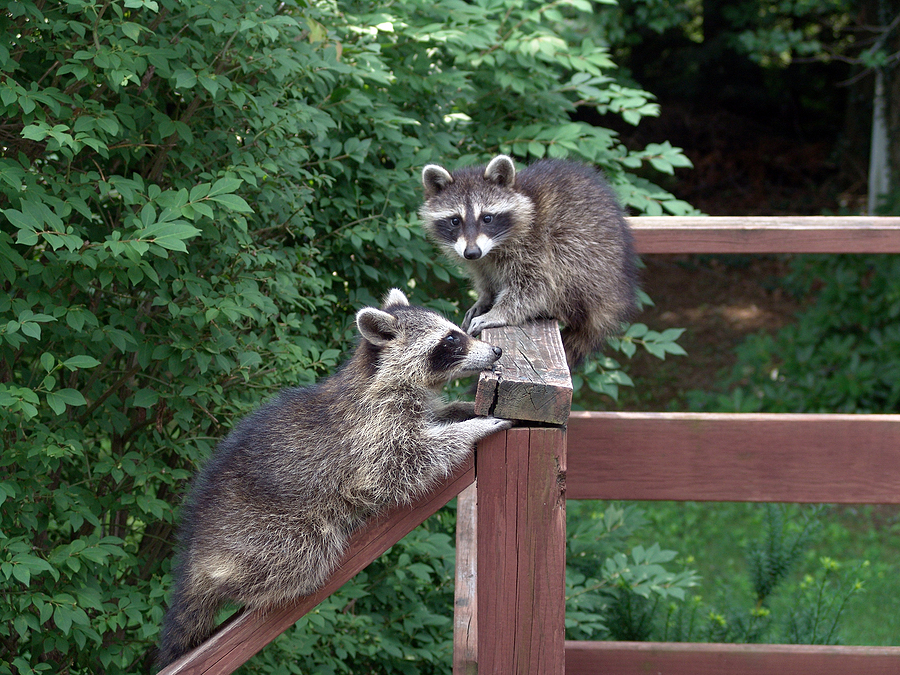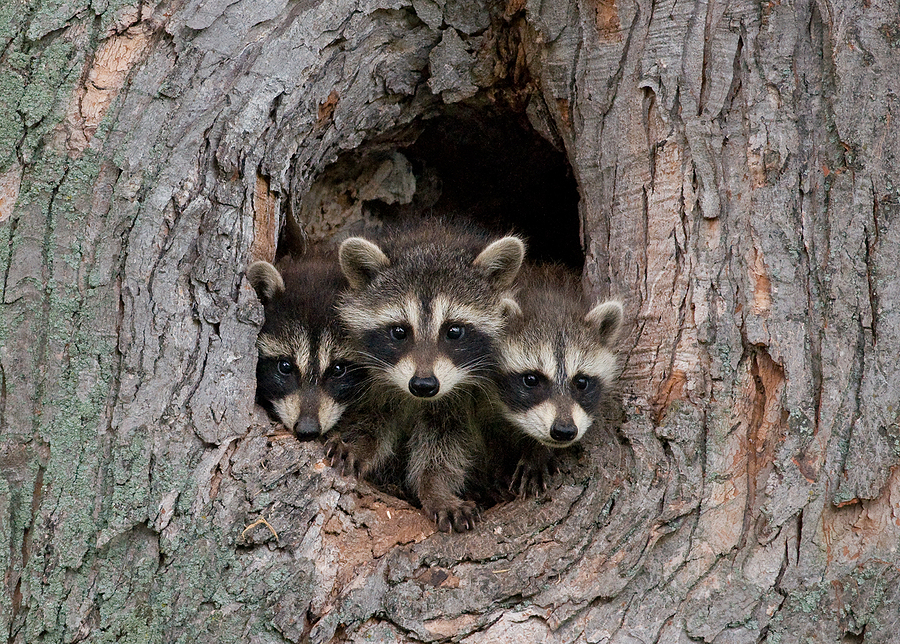Raccoons are increasingly becoming common visitors in urban and suburban areas, much to the concern of homeowners and gardeners. These intelligent and adaptable creatures can cause significant disruptions in residential settings, leading many to seek effective ways to keep them at bay. In this comprehensive guide, we’ll explore raccoon behavior, identify signs of their presence, and provide humane solutions for managing raccoons in your backyard.

Understanding Raccoon Behavior
Raccoons are nocturnal animals, known for their dexterity and curiosity. They are opportunistic feeders, meaning they will eat almost anything, which is why residential areas with readily available food sources are so attractive to them. Gardens, garbage bins, bird feeders, and pet food left outside are all common attractions.
Why Raccoons Are Attracted to Residential Areas
- Food Availability: Easy access to food sources such as garbage, compost, and pet food.
- Shelter: Safe nesting spots like attics, sheds, garages, and even under decks.
- Water Sources: Bird baths, ponds, and pet water dishes.
Potential Risks of Raccoons in Backyards
While raccoons can seem harmless, they pose several risks:
- Damage to Property: Raccoons can tear up gardens, raid garbage bins, and cause structural damage while seeking shelter.
- Health Risks: They can carry diseases such as rabies and leptospirosis, which can be transmitted to humans and pets.
- Conflict with Pets: Raccoons can be aggressive if they feel threatened, posing a risk to household pets.
Signs of Raccoon Presence
Identifying whether raccoons are visiting your backyard involves looking for specific signs:
- Footprints: Raccoon tracks resemble small human hands and are often found near food sources or entry points.
- Scattered Trash: Tipped over garbage bins with rubbish strewn about.
- Garden Damage: Dug-up plants and vegetables are a tell-tale sign.
- Nests: Evidence of nesting in attics, sheds, or under decks.
- Raccoon Droppings: Feces can often be found in the same spot, typically on flat surfaces like roofs or decks.
Effective and Safe Raccoon Deterrents
Implementing environmentally friendly and humane methods to deter raccoons is critical. Here are some effective strategies:
Securing Garbage and Compost
- Use Raccoon-Proof Bins: Invest in heavy-duty garbage cans with locking lids.
- Double Bag Trash: Reduce odors by double-bagging and securely tying trash bags.
- Compost Management: Use enclosed compost bins and avoid composting animal products.
Protecting Your Garden and Poultry
- Fencing: Install fencing around gardens and poultry enclosures. Ensure the fencing is buried at least a foot underground to prevent burrowing.
- Motion-Activated Lights and Sprinklers: These can startle raccoons and make your yard less inviting.
- Netting and Covers: Use netting to protect fruit trees and vegetable gardens.
Natural Deterrents
- Predator Urine: Products containing coyote or fox urine can deter raccoons.
- Spicy Repellents: Capsaicin-based sprays can be applied to plants or garbage areas.
- Noise Makers: Ultrasonic devices can deter raccoons but ensure they are safe for pets.
- Strategic Gardening: Certain plants like marigolds, daffodils, and alliums are known to repel raccoons.
When to Seek Professional Raccoon Control
Sometimes, despite best efforts, raccoon problems persist. Situations warranting professional assistance include:
- Persistent Infestations: Continuous raccoon activity despite implementing deterrents.
- Attic or Structural Invasions: Raccoons nesting in hard-to-reach areas of your home.
- Health Concerns: If raccoons appear sick or aggressive, professional intervention is necessary.
Choosing Ethical and Reputable Wildlife Control Services
When selecting a wildlife control service, ensure they adhere to humane practices. Look for companies that:
- Use Non-Lethal Methods: Trapping and relocation should follow local wildlife laws.
- Offer Comprehensive Solutions: Including repairs and exclusion techniques to prevent future issues.
- Have Positive Reviews and Certifications: Verify their reputation through customer feedback and professional accreditations.
Community and Legal Considerations
Local Ordinances and Regulations
Before taking action, familiarize yourself with local laws regarding wildlife control. Some areas have specific regulations on capturing and relocating raccoons.
Encouraging Community Involvement
- Neighborhood Watch: Collaborate with neighbors to identify and mitigate raccoon attractions.
- Shared Resources: Pool resources for community-wide deterrent measures like fencing and secure trash areas.
- Educational Initiatives: Inform community members about humane raccoon control methods.
Conclusion
Raccoons in the backyard can be a nuisance, but with a strategic approach, you can manage their presence effectively and humanely. Remember, the key is to eliminate attractants, secure potential entry points, and employ natural deterrents. When needed, don’t hesitate to seek professional help. For safe and effective raccoon control services, contact our team at [Your Company Name] today. Together, we can create a backyard that’s enjoyable for you and uninviting for raccoons.
We hope this comprehensive guide has provided you with valuable insights and tips for battling these mischievous critters. Contact Budget Animal Removal at 615-337-9165 for TWRA licensed and insured Nashville, Tennessee animal removal for raccoons and more. We serve commercial clients too.
Related Posts:
Preventing Raccoons from Entering Your Attic – Tips & Tricks
Top Signs That Suggest Nearby Raccoon Activity
Types of Dangerous Parasites Found in Raccoons



